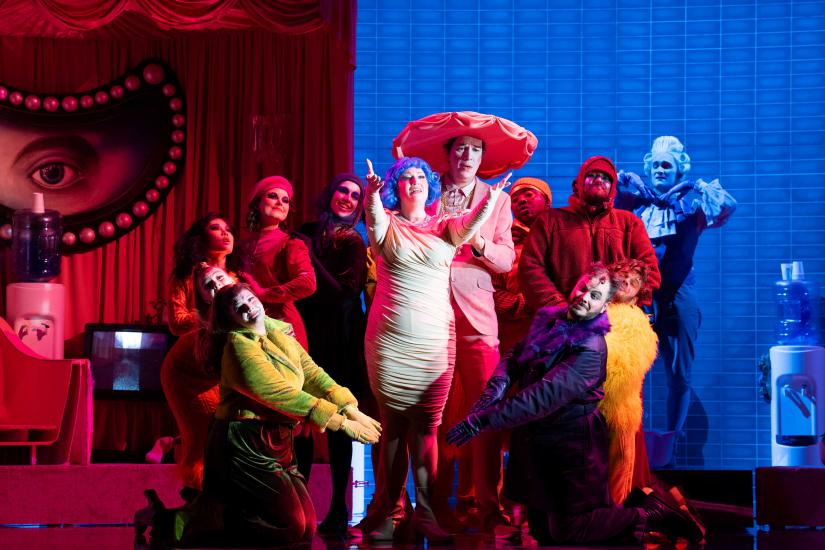Cambridge Arts Theatre – until Saturday 4 May 2024
Reviewed by Steph Lott
4****
Jude Christian’s daring production of Giacomo Puccini’s “Manon Lescaut” at the Cambridge Arts Theatre is a thought-provoking and divisive interpretation of the composer’s early masterpiece. The decision to perform the opera in English, with a libretto adapted by Christian, was a bold choice but ultimately fell short of its intended impact.
The cast, led by Jenny Stafford as Manon and Gareth Dafydd Morris as Des Grieux, delivered strong performances despite the limitations of the English translation. Stafford’s portrayal of the titular character was nuanced and emotionally charged, her soprano voice navigating the complex vocal lines with skill and passion. Morris was equally impressive as the lovestruck Des Grieux, his powerful tenor voice soaring through the theatre. Brenton Spiteri, as a Puckish Edmondo, provided a solid and engaging support to the main leads.
The orchestra, under the baton of Gerry Cornelius, did justice to Puccini’s lush and dramatic score. The music ebbed and flowed with the emotional tides of the story, I think it’s fair to say that the audience really enjoyed all the musical performances and showed this with many cries of “Bravo!” at the end.
However, Christian’s modern approach to the staging and direction of the opera proved to be a point of contention for many in the audience. The quirky set design, contemporary costumes, and unexpected blocking at times felt at odds with the traditional romanticism of the story. While some may appreciate the attempt to bring a fresh perspective to the work, others found it distracting and detrimental to the overall emotional impact of the piece.
The English translation, while admirable in its intent to make the opera more accessible, often felt clunky and unable to capture the poetic nuances of the original Italian. This disconnect between the words and the music occasionally led to awkward phrasing and a loss of the opera’s inherent lyricism.
Despite these shortcomings, “Manon Lescaut” remains a significant work in Puccini’s oeuvre, showcasing the composer’s ability to craft emotionally charged, memorable melodies. The opera’s themes of love, betrayal, and the consequences of one’s actions still resonate with modern audiences, even if this particular production’s execution may have fallen short of its potential.
In conclusion, the English Touring Opera’s production of “Manon Lescaut” boasts strong performances from its lead cast and a capable orchestra. However, controversial directorial choices and the limitations of the English translation may leave some audience members unsatisfied. Those open to a more experimental and modern interpretation may thoroughly enjoy this production, but traditionalists might prefer a more conventional approach that adheres more closely to Puccini’s original vision.

